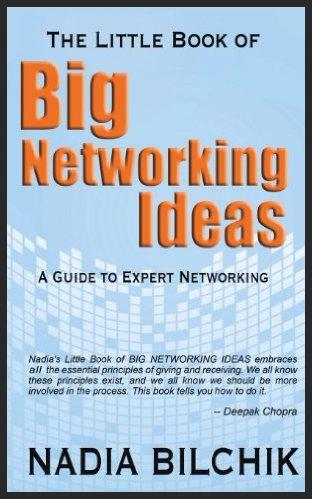 I recently had the pleasure of joining brand guru Melissa Simkins to discuss the topic of expert networking. Here are a few of the key points that came out of the conversation.
I recently had the pleasure of joining brand guru Melissa Simkins to discuss the topic of expert networking. Here are a few of the key points that came out of the conversation.
Be a go-giver
We often think of networking as the process of approaching others whom we believe have something to offer us. But the most successful networkers strive to provide value to their contacts, as well. If you’re not in a position to help a contact with their career, maybe you can offer them advice or information in another area. Even simply offering a compliment about their recent accomplishments is of value. In short, don’t just be a go-getter — be a go-giver, as well.
Ask respectfully
When you’re asking a contact for a favor, try not to give the impression that you feel you’re entitled to their help. Start with a compliment, and let them know that you’re grateful for anything they can do. Say something along the lines of, “You’ve been so successful in your field, any advice you may have for me would be much appreciated.”
Be a resource
It’s important to support others who come to you for favors or advice, because they may be in a position in the future to help you out when you need it. Networking is reciprocal. And if someone asks you for help in an area where you’re unable to provide it, do your best to refer them to someone else who may be able to lend a hand.
Nurture your current contacts
Networking isn’t just about meeting new people. It’s also about maintaining relationships with those already in your circle. Be systematic about your maintenance strategy. Pass along articles of interest, send birthday wishes — anything to let your contacts know that you’re thinking of them. This can also mean writing regular blogs or sending out newsletters with information your network will find valuable.
Be authentic
Many of us believe that we have to be extroverts in order to be successful networkers. But that’s not the case. You don’t have to be the most outgoing person in the room — and you don’t have to approach a potential contact and introduce yourself out of the blue. If you’re at an event, approach a group — they’re likely to draw you in to their conversation in a more organic way. To get the ball rolling, just start by making small talk. Forcing yourself to come off as more extroverted than you are is likely to appear insincere, and being genuine is an important part of establishing real connections.



